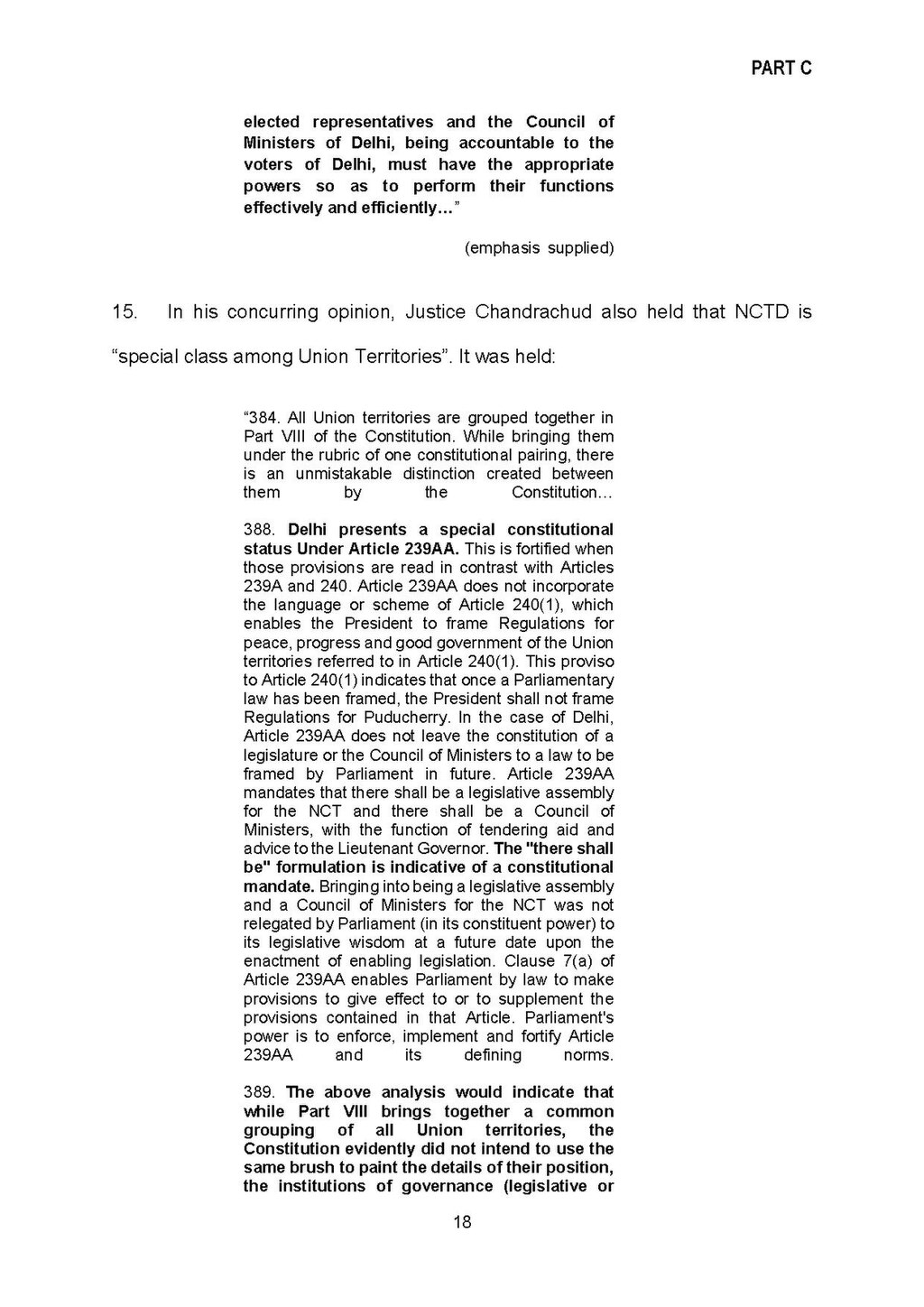elected representatives and the Council of Ministers of Delhi, being accountable to the voters of Delhi, must have the appropriate powers so as to perform their functions effectively and efficiently…”
(emphasis supplied)
15. In his concurring opinion, Justice Chandrachud also held that NCTD is “special class among Union Territories”. It was held:
“384. All Union territories are grouped together in Part VIII of the Constitution. While bringing them under the rubric of one constitutional pairing, there is an unmistakable distinction created between them by the Constitution...
388. Delhi presents a special constitutional status Under Article 239AA. This is fortified when those provisions are read in contrast with Articles 239A and 240. Article 239AA does not incorporate the language or scheme of Article 240(1), which enables the President to frame Regulations for peace, progress and good government of the Union territories referred to in Article 240(1). This proviso to Article 240(1) indicates that once a Parliamentary law has been framed, the President shall not frame Regulations for Puducherry. In the case of Delhi, Article 239AA does not leave the constitution of a legislature or the Council of Ministers to a law to be framed by Parliament in future. Article 239AA mandates that there shall be a legislative assembly for the NCT and there shall be a Council of Ministers, with the function of tendering aid and advice to the Lieutenant Governor. The "there shall be" formulation is indicative of a constitutional mandate. Bringing into being a legislative assembly and a Council of Ministers for the NCT was not relegated by Parliament (in its constituent power) to its legislative wisdom at a future date upon the enactment of enabling legislation. Clause 7(a) of Article 239AA enables Parliament by law to make provisions to give effect to or to supplement the provisions contained in that Article. Parliament's power is to enforce, implement and fortify Article 239AA and its defining norms.
389. The above analysis would indicate that while Part VIII brings together a common grouping of all Union territories, the Constitution evidently did not intend to use the same brush to paint the details of their position,
the institutions of governance (legislative or
18
